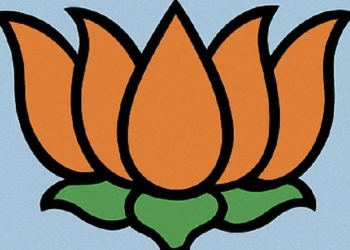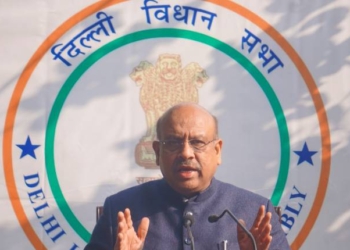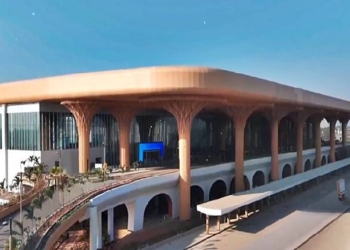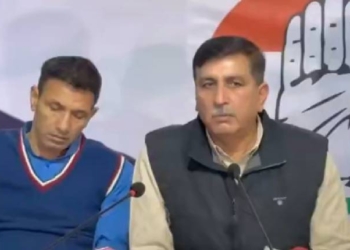New Delhi: It is a matter of national pride that an Indian astronaut is an active participant with defined scientific responsibilities in an international mission, Union Minister of State for Science and Technology (Independent Charge) Dr Jitendra Singh said on Tuesday, as he announced that Group Captain Shubhanshu Shukla will carry out a series of crucial scientific experiments in space.
The announcement marks a significant milestone in India’s growing presence in global space exploration.
Dr Singh, who also holds responsibilities as MoS in the Prime Minister’s Office and of the Space Department, said that Group Captain Shukla’s space research will cover a wide range of scientific domains.
These include studying physical, cognitive, and physiological responses in space, as well as the effects of continuous electronic display use in microgravity — an important consideration for future long-duration missions.
The astronaut will also investigate skeletal muscle dysfunction in microgravity and test possible therapeutic strategies to counter its effects.
In addition, he will perform experiments involving extremophiles like Tardigrades, tiny organisms known for surviving extreme conditions.
These experiments could expand our understanding of how life might sustain itself beyond Earth.
Group Captain Shukla is one of the four astronauts selected for India’s ambitious Gaganyaan human spaceflight mission, scheduled for launch in early 2027.
He is also participating in the upcoming Axiom-4 mission to the International Space Station (ISS), with Group Captain Prasanth Nair named as the designated backup.
The minister highlighted that discussions around sending an Indian astronaut to the ISS were part of Prime Minister Narendra Modi’s recent visit to the United States.
He credited the post-2014 policy reforms in the space sector — such as opening Sriharikota to citizens and inviting private sector participation — as pivotal to India’s emergence as a leader in NewSpace initiatives.
Speaking about Gaganyaan, Dr Singh said the trial phases are currently underway, and once completed, India will take a major leap forward in becoming truly Atmanirbhar (self-reliant) in the space domain.
He called these space experiments ‘game-changers’ that will significantly strengthen the country’s space ecosystem.
Singh also noted that India’s space economy is projected to grow fivefold, from $8 billion to $44 billion, aligning with the government’s long-term vision of Viksit Bharat @2047.
He said 2014 was a turning point when PM Modi opened the space sector to private players, foreign direct investment, and global collaborations.
Beyond space, the Minister touched upon the government’s focus on deep ocean exploration, stating that India’s vast coastal resources remain underutilised.
The Deep Ocean Mission aims to change that by unlocking the potential of the marine economy.
He also emphasised India’s push for clean energy, with increased funding for nuclear energy research and the development of Bharat Small Modular Reactors, key to achieving Net Zero emissions by 2070.
(IANS)
















